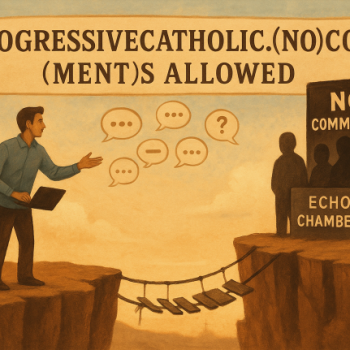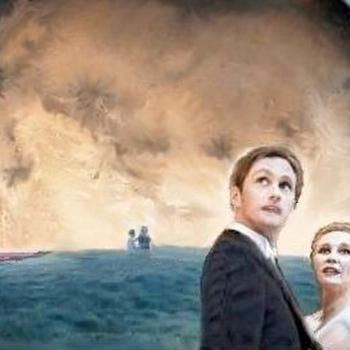Hard as that was, I was able to identify with their suffering, for I have known suffering. I understood their requests for God's miraculous intervention, because I have made such requests. But I also know — or think I know — that the ultimate trend of all matter in this material universe is toward death and destruction, and I hoped to help people accept that.
One day on the critical care ward, a completely undignified shout went up from the hallway. I looked in that direction, expecting to see nurses and other hospital workers moving over to shush whoever was making the noise.
Except it was nurses and hospital workers who were shouting. They were clustered around a handsome young man of around twenty, shaking his hand, clinging to his neck, and Jolynne, the charge nurse, must have seen my look of confusion, because she said: "That's Perez, the famous Perez. He was in 606, in a coma." She indicated the intensive care room right across from us. "Thrown riding a bull. He was brain dead. We had a couple of ethics consults — most of us wanted to pull the plug." She sighed at the memory. "But the family asked us to give it three months."
"He was brain dead," she repeated. "We thought he'd never come out of it. But," she blinked, a tiny smile growing across her face, "he did."
Sandra, another nurse, bounced back from the hall and settled in at the nurses's station. "Perez is here," she told Jolynne, who nodded and smiled back. "He's walking and talking."
"Wow," I said. "He really beat the odds."
Sandra held up her finger to shush me. "There were no odds," she said, waving that finger at me. "He was brain dead, and nerve tissue don't grow back." She looked down the hall, where Perez was walking to the far nurses' station. "And now — he's all walky-talky."
This story about the Famous Perez is clearly a resurrection story, and although you and I know that this story is notable, that resurrection almost never takes place, nonetheless, here it is. Like Jesus on Easter morning — something happened. I can't explain it, my life is easier if I don't have to think about it, but in this story, God moved in some fashion to make things right, and things were never the same afterward.
Ultimately, I think that's where we should land in thinking about the Resurrection, on the notion that something happened that changed everything, including, I hope, us. Progressive Bible scholar John Dominic Crossan has been speaking in recent years about the notion of "operational belief," the idea that whether you believe the Bible stories (including the Resurrection) literally or figuratively, those beliefs ought to make a living difference in your life.
And former Archbishop of Canterbury Rowan Williams has written about the Resurrection that "What is vital to Christian discourse about the resurrection can be stated exclusively in terms of what happens to the minds and hearts of believers when proclamation is made that the victim of the crucifixion is the one through whom God continues to act and speak."
In other words, the resurrection story, however we understand it, whether or not we can explain it, should make a difference in our minds and hearts. It's supposed to; that's what resurrection does. Resurrection stands up against the tide of sin and death, it proclaims hope over despair, and it tells us that whatever happens to us, thanks be to God, the end of things is not really the end of things.
And that should change us.
The Greek word we translate as "belief" in the Thomas lesson suggests elements of trust, faith, and reliance, but it also suggests an act. It suggests throwing ourselves into what we believe. So whether we are literal or liberal readers of scripture, whether our Jesus is all walky-talky like Perez or is a beautiful story that helps explain the way the world has changed over the last 20 centuries, we are called to believe in it.
Really believe in it.
Let it throw us off balance.
Let it change us, as it has always changed people: change our personal faiths and practices, change our lives in community, change our values.
Christian tradition — probably apocryphal, but still, too good a story to throw away — tells us that Thomas, who did not want to believe, traveled to India, where he preached Jesus as the Son of God and was ultimately martyred for those beliefs.
What happened to change him?
Easter happened.
And it has happened again, is happening now —
To us, if will let it.





